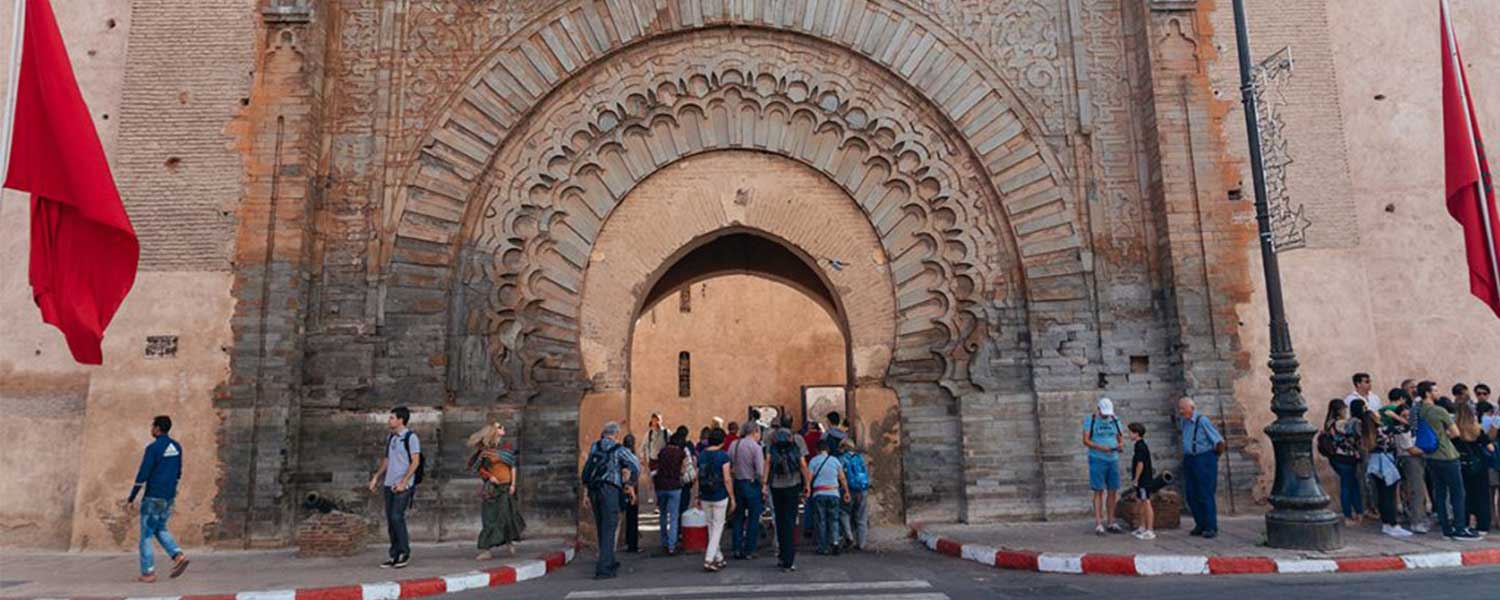Festivals:
Morocco has festivals all-year-round which showcase the best of local culture, traditions and landscape. Planning your trip to Morocco around a festival is a great way to see the country and indulge in some culture at the same time.
- The Rose Festival at Kelaa M’Gouna in May.
- Gnawa World Music Festival at Essaouria in May/June.
- Sacred Music Festival at Fes in May/June.
- Mawazine at Rabat in June.
- Ramadan, one month.
- Eid al-Fitr fest at then of Ramadan.
- Eid al-Adha is fest after Ramadan which about two month and 10 days in between.
- Marriage Festival at Imilchil in September.
- Date Festival at Erfoud in October.
- International Film Festival at Marrakech in December.
Climate and clothing:
Morocco is located in the North-western coast of Africa, with subtropical weather. (May-Sep) is hot (~20 – 40°C) and dry, whilst winter (Nov-Feb) is cool (~-5 – 20°C) and relatively humid. The northern part of Morocco possesses Mediterranean weather, the western part of Morocco faces the Atlantic Ocean and is more humid. The Eastern and Southern part of Morocco are adjacent to the Sahara Desert and have typical desert weather. The best time to visit Morocco shall be September to April. In the hot summer months wearing light, loose, cotton or linen clothing your shoulder and legs.is advised. A hat or turban is a must to protect the head against the heat and sun. In autumn and spring a light jacket or fleece is recommended; the evenings can be quite cool. In winter, warm clothing is a must.
Languages:
The official languages in Morocco are Arabic and Berber, whilst French and Spanish are second languages. English has become more common nowadays, especially in touristic spots.
Culture:
In addition to the fabulous climate and beautiful scenery, a major attraction of Morocco is its unique, remarkably intact and fascinating culture and history, a blend of Berber, Arabic and Jewish influences which provides a feast of the senses. Morocco is one of the most liberal Islamic countries – but you should respect and be sensitive to their customs and restrictions. The main restriction a tourist will encounter is banned entry into the mosques if you are not a Muslim. This is unfortunate, as many mosques feature beautiful artistry of design. There are a few note-worthy exceptions: the Hassan II in Cassablanca, Mohammed V Mausoleum in Rabat, and Moulay Ismail Mausoleum in Meknes are open to all visitors. During the month of Ramadan, when the believers fast each day until sunset, you will have a few more challenges than tourists visiting at other times as many establishments for food and drink will be closed. Not to worry; you still will be able to find many places open to eat during the day. In Islamic countries it is forbidden to drink alcohol. As Morocco is a favorite tourist destination, restrictions have been relaxed and alcohol is served in many bars, hotels and restaurants. You should not offer alcohol to Muslim although, many young and westernized Moroccans drink alcohol.
Currency:
The official currency of Morocco is Dirham (MAD / Dh). The cash notes include: Dh20, Dh50, Dh100, Dh200 and Dh500; whilst the coins include: 5 cents, 10 cents, 20 cents, 50 cents, Dh1, Dh2, Dh5 and Dh10. Some shops, restaurants, hotels and riads accept Euro and USD. Dirhams can only be exchanged or purchased in Morocco. Currency exchange can be done in bank, money exchange shops and hotels.
Telephone:
Morocco country code is (+212) There are three main license telecommunications companies in Morocco, Maroc Telecom, INWI, Orange, They all sell prepaid Sim cards and will work on your phone as long as your mobile telephone is unlock. You can buy SIM cards for most phones.
Internet:
Majority of hotels and riads have WIFI available on their property. There are also many Internet cafes available almost anywhere in Morocco.
Electricity:
Morocco uses French-style 220-volt electrical plug, which is similar to that used in continental Europe.
Health:
No vaccinations are required when travelling to Morocco. It is advisable to drink bottled water. Most cities have private clinics along with governmental hospitals. It is recommended to come to Morocco with full medical insurance, including cover for repatriation. Bring stomach settlers, insect bite creams, pain relievers at home and taken with you.
Airports:
Morocco has various international and domestic airports which locates at Casablanca, Marrakech, Agadir, Tangier, Fes, Ouarzazate, Al Hoceima, Dakhla, Errachidia, etc., in which Mohammad V International Airport in Casablanca is the biggest airport in Morocco serving internal flights from around the world.
Tips:
Most hotels, riads and restaurants do not contain service charges. It is recommended to give 8-12% tips to hotel, restaurants, drivers and tour guides depending on your satisfaction.
Safety:
Morocco is a safe country, but sometimes local people may approach tourists and ask for a few dirhams directly.
Things to do:
Food and Drink:
There are various special Moroccan cuisine you should try: Harira, Lemon and chicken tajine, Plum and lamb tajine, Kafta tagine, couscous, pastilla, Berber pizza, barbeque, Moroccan salad, mint tea, fresh fruit juice, assorted biscuits, olives, almond, dates, etc.
Shopping and bargaining
Shopping in Morocco is an exceptionally unique experience. There are many beautiful items to be found: exotic Moroccan carpets, spices, textile & yarn, metal ware, jewelry, woodwork and much more. The original asking price for an item might be several times higher to its potential selling price and you are expected to participate in the verbal contest of bartering before buying. Otherwise, you will pay several times what a local Moroccan would and possibly purchase an item you don’t even want! Stick to your guts, be patient and pay only what you think is fair.





